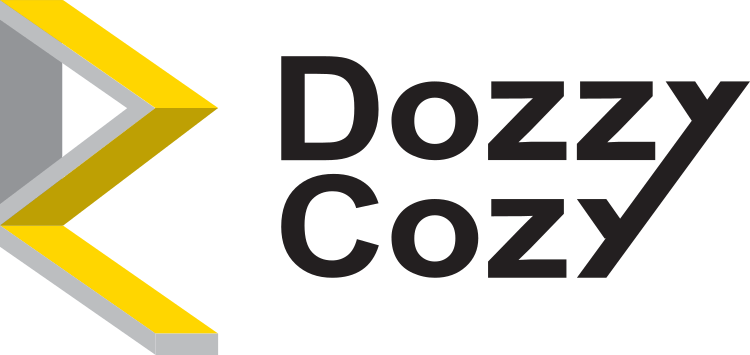 A new technology has been developed by LumosTech that uses light therapy to help manage an individual’s circadian rhythm, which is our body’s internal clock that dictates when we feel sleepy or awake. Aligning our sleep schedule with this natural rhythm can lead to more restful sleep. Conversely, sleeping outside of these natural rhythms can negatively impact the quality of our sleep.
A new technology has been developed by LumosTech that uses light therapy to help manage an individual’s circadian rhythm, which is our body’s internal clock that dictates when we feel sleepy or awake. Aligning our sleep schedule with this natural rhythm can lead to more restful sleep. Conversely, sleeping outside of these natural rhythms can negatively impact the quality of our sleep.
LumosTech aims to address the challenges faced by individuals who work night shifts. Working a night shift can be brutal, and can be compared to flying to China and back in terms of its impact on the body. To combat this issue, LumosTech has created a night shift module that helps users adjust to their night shift schedule.
Light therapy mask regulates circadian rhythm
The technology behind the light therapy mask is based on research conducted at Stanford University. This research demonstrated that short light flashes can be used to regulate the human circadian clock. The mask uses this light therapy to activate the photosensitive receptors in the eyes, which then send signals to the suprachiasmatic nucleus (SCN) in the brain. The SCN is a small region that controls the circadian clock. By stimulating the SCN with light flashes, the mask can effectively change an individual’s circadian rhythm, influencing when they need to sleep or should be sleeping.
Dr. Biquan Luo, CEO of LumosTech, touches upon the impact of natural light on our sleep and mood. She highlights how living in regions with limited sunlight, such as Maine or Seattle, can affect sleep and overall well-being. The mask helps compensate for this lack of natural light by providing light therapy that mimics the effects of sunlight.
Using the LumosTech mask
To personalize the mask’s functionality, users are required to answer a series of questions about their sleep schedules and biological profiles. Based on these answers, the mask can determine the user’s chronotype, whether they are naturally inclined to be early birds or night owls. Depending on the user’s specific needs, the mask offers different modules. For instance, there is a Beat Jetlag module for travelers, a night shift module for healthcare professionals, and a module for individuals experiencing seasonal affective disorder, which exposes them to morning light.
The mask allows users to adjust their bedtime and wake-up time, enabling them to adapt to changing schedules or overcome the effects of jet lag. The podcast host shares their own experience of working overnight shifts and the challenges of adjusting their sleep pattern when transitioning to a daytime shift.
Overall, the light therapy mask offers a promising solution for individuals struggling with sleep issues or disrupted circadian rhythms. By leveraging the power of light to regulate the internal clock, this technology has the potential to improve sleep quality and overall well-being.
Conclusion: The power of light can improve sleep
In conclusion, the night shift module developed by LumosTech offers a promising solution for individuals who work night shifts and struggle with disrupted sleep patterns. By using light therapy to regulate the internal clock, the module helps users adjust to their night shift schedule and experience improved sleep quality. With further development and expansion of the module’s capabilities, it has the potential to greatly benefit individuals with various sleep disorders and contribute to overall well-being.
The mask itself is described as incredibly light and comfortable to wear. It is currently only compatible with Apple devices and is priced at $298. The mask comes with a companion app that includes six modules to combat different types of sleep disorders. The company is also continuing to develop new modules to address various sleep issues.
Interview by Christopher Jordan of The Talking Sound.
Get $5 to protect your credit card information online with Privacy.
Amazon Prime gives you more than just free shipping. Get free music, TV shows, movies, videogames and more.
The most flexible tools for podcasting. Get a 30 day free trial of storage and statistics.
Podcast: Play in new window | Download
Subscribe: Apple Podcasts | RSS | More



 The
The  In modern society, one of the few constants is stress. Whether it’s a big presentation at work, a growing family, financial concerns, or even a business trip to Las Vegas for CES, stressors are everywhere. Our bodies respond to this stress in a few ways, including by releasing certain hormones into the body. Being able to measure and track these hormones can help you track and properly respond to the stressors we live through every day. Nutrix AG has a sensor to do just that.
In modern society, one of the few constants is stress. Whether it’s a big presentation at work, a growing family, financial concerns, or even a business trip to Las Vegas for CES, stressors are everywhere. Our bodies respond to this stress in a few ways, including by releasing certain hormones into the body. Being able to measure and track these hormones can help you track and properly respond to the stressors we live through every day. Nutrix AG has a sensor to do just that. Millions of people have issues sleeping at night. Whether there’s too much going on in their head, their diet has caused something in their body to be unbalanced, or any number of other issues, it is not an easy problem to deal with. Some people find comfort in music, some in white noise, and others in repetitive TV or movies. But, for many, the problem is addressed with medications. For those who want to try something a little different, there is
Millions of people have issues sleeping at night. Whether there’s too much going on in their head, their diet has caused something in their body to be unbalanced, or any number of other issues, it is not an easy problem to deal with. Some people find comfort in music, some in white noise, and others in repetitive TV or movies. But, for many, the problem is addressed with medications. For those who want to try something a little different, there is  Trying to stay in shape can be a real challenge. If you know what you’re doing, you can have your own equipment. However, if you don’t know what you’re doing, you have to go to the gym and pay a membership fee, and possibly even a personal trainer. But, if you want to work out on your schedule at home and have the convenience of a trainer, LG has a new project called
Trying to stay in shape can be a real challenge. If you know what you’re doing, you can have your own equipment. However, if you don’t know what you’re doing, you have to go to the gym and pay a membership fee, and possibly even a personal trainer. But, if you want to work out on your schedule at home and have the convenience of a trainer, LG has a new project called  Healthy sleep can be a real challenge. For a lot of people, getting comfortable at night is nearly impossible. This is made even more problematic if you change positions throughout the night. Every time you move, your pillow is suddenly not supportive in the way you need it, especially if you do it while you are still asleep. Fortunately, there is a new pillow –
Healthy sleep can be a real challenge. For a lot of people, getting comfortable at night is nearly impossible. This is made even more problematic if you change positions throughout the night. Every time you move, your pillow is suddenly not supportive in the way you need it, especially if you do it while you are still asleep. Fortunately, there is a new pillow –  These days, we have a lot of sensors in our homes. Nearly everyone has a fire alarm and a carbon monoxide alarm. In addition, we’ve got motion sensors, security cameras, smart speakers and thermostats with presence detection, and a lot more. But, one threat detection that appears to be missing for no known reason is natural gas detection. New Cosmos USA is looking to change this with the
These days, we have a lot of sensors in our homes. Nearly everyone has a fire alarm and a carbon monoxide alarm. In addition, we’ve got motion sensors, security cameras, smart speakers and thermostats with presence detection, and a lot more. But, one threat detection that appears to be missing for no known reason is natural gas detection. New Cosmos USA is looking to change this with the  Over the past decade, it seems that everything has become smart. From lightbulbs to refrigerators, to even glasses, everything is getting smarter. In some cases, the benefits have been obvious, such as being able to control lightbulbs without having to go to a particular place in the room or having special wiring. However, some items being smart have mostly been gimmicky, like glasses. That is until now – as
Over the past decade, it seems that everything has become smart. From lightbulbs to refrigerators, to even glasses, everything is getting smarter. In some cases, the benefits have been obvious, such as being able to control lightbulbs without having to go to a particular place in the room or having special wiring. However, some items being smart have mostly been gimmicky, like glasses. That is until now – as